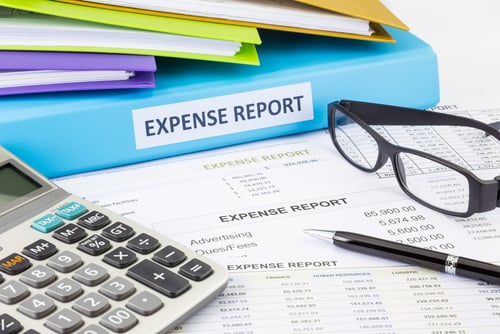
When it comes to finances, either personal or business, there are a lot of moving parts. If you add on investment properties as well, it can quickly become overwhelming. Part of being an efficient and responsible landlord involves maintaining impeccable financial records. Additionally, these records become invaluable in instances of tenant or vendor disputes and can make tax time a breeze. So, follow along with us below as we outline some accounting best practices, including tips for tracking expenses for rental properties.
Efficient Banking Practices for Landlords
- Choose the Right Bank
- Avoid Co-mingled Funds
- Track and Itemize All Expenses
- Establish Key Reports
- Periodic Reconciliation
Avoid Co-mingled Funds
To simplify transactions and accounting functions, create different accounts for each property. Avoid mixing personal funds with those from your investment properties. Therefore, any expenses or funds can easily be tracked and documented with ease. If you decide to open an LLC for your rental properties, separate accounts are required.
Track and Itemize All Expenses
Any expenses, invoices, and payments should be meticulously recorded. Tracking serves several purposes, such as tax reconciliation and for use in determining the profitability of your investment. By itemizing different expenses, you may be able to claim these against your taxes to reduce your overall tax bill.
Itemized Expense Categories as Defined by the IRS
- Advertising
- Auto and Travel Expenses
- Cleaning and Maintenance
- Insurance
- Legal and Other Professional Fees
- Management Fees
- Mortgage Interest Paid to Banks
- Repairs and Supplies
- Utilities
- Depreciation Expenses
Establish Key Reports
Once you are tracking expenses for rental properties, the next step is having some key metrics easily accessible. The ability to quickly see important information regarding profit and loss, expense trends and a summary of financials are essential to success. Not only does this help you run your business better, but it also makes you look more professional to banking institutions, lenders, or investors. However, if you are not a whiz with Excel, various software options can generate a lot of the things you need almost instantaneously.
Periodic Reconciliation
Just as you would balance your checkbook, business accounts need the same attention. No one is perfect, so data entry errors can and do occur. To ensure your reporting and financials are accurate, periodically check them against your bank statements. By establishing a comprehensive tracking system, reconciling against your bank paperwork should be a simple task done each month.
Do All Landlords Need an Escrow Account?
Well, the answer depends on your local and state laws, but regardless it is a good thing to have. An escrow account provides a neutral place to hold tenant security deposit funds during the duration of the lease. Your location will determine what laws apply, but all or some of the factors below may apply.
Escrow Rules for Landlords
- Set up an escrow account or deposit the security funds into a financial institution
- Landlords that reside out of state will need a local account where their rental property is located
- Some states require funds to be placed in an interest-bearing escrow account
Best Software for Tracking Expenses for Rental Properties
Technology has made it’s way to the rental industry and is here to stay. So, take advantage of the tons of programs on the market that not only make you more efficient but more accurate. When it comes to accounting and generating reports, these administrative tasks can easily chip away at your day. Read on to discover some of the top programs on the market working to make your life as a landlord easier.
- AppFolio Property Manager: Appfolio is a full-service property management software. It allows you to easily manage your properties on a single platform that is ultra-user friendly. Accounting reports can be quickly customized, and they offer tools to handle everything from rent collection to online tenant portals and maintenance requests. This software does come with costs but may be well worth it, depending on your goals.
- Propertyware: This handy platform allows landlords to complete a wide range of tasks in an easy to follow, easy to learn the software. The programs can easily be customized to fit your particular needs, whether you have two properties or 2,000, Propertyware can handle it all. Pricing begins at $1 per month per unit plus an additional start-up fee, which can be a budget-friendly option for almost anyone.
- Buildium: Looking for all-inclusive service, Buildium has it. This site offers a wide range of accounting functions, from daily reporting to 1099 filings. Like the other sites we have mentioned, Buildium includes convenient services such as online tenant portals, a professional website, and even community management tools.
Final Thoughts
As you can see, however you go about tracking expenses for rental properties, it is a vital task as a property manager. Even with experience, it can become overwhelming on your own, so utilize the software that is available within the industry. Are you looking for a more hands-off and stress-free approach for your Fort Washington area investment property? Consider hiring an investment property management firm like Bay Property Management Group Montgomery County. Our experienced and dedicated staff uses the latest technology to provide a stress-free owner experience and high tenant satisfaction.
